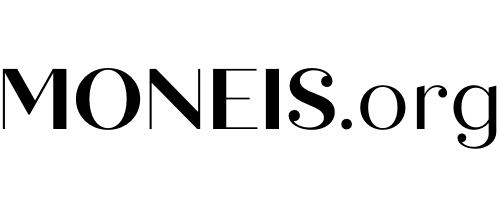Small business insurance is a crucial safeguard for your entrepreneurial journey. This article unpacks seven vital tips to ensure your dream business stays protected.
From selecting the right policy to understanding coverage needs, you'll find practical advice here. Let's dive into these insights to fortify your business against unforeseen challenges.
Essential Coverage for Small Enterprises
Insurance is vital for small businesses to safeguard against unforeseen losses. It provides financial security, ensuring business continuity after mishaps. Without insurance, a single incident could cause significant financial strain or closure.
Insurance covers various risks, from property damage to legal liabilities. It's an investment in stability and peace of mind. For small businesses, this protection is crucial for long-term success.
7 Key Insurance Strategies for Small Enterprises
Insurance is a critical tool for protecting your small enterprise. These seven tips will guide you in securing your business effectively.
Fundamental Insurance Knowledge for Small Ventures
Understanding insurance basics is key for small venture owners. It's about knowing what coverage you need and why.
Explanation of Insurance
Insurance for small ventures transfers risk to a third party, mitigating financial losses. It covers unexpected events like property damage, lawsuits, or employee injuries.
Policies vary, but the goal is consistent: to protect your business from severe financial impacts. Selecting the right insurance is a strategic decision to guard against potential setbacks.
Common Insurance Types
Various insurance types cater to different aspects of business protection:
- Liability Insurance: Shields against claims of injury or property damage by others.
- Property Insurance: Covers damage to your business property, including equipment.
- Workers' Compensation: Provides benefits to employees injured at work.
- Business Interruption: Compensates for lost income during unforeseen closures.
- Professional Liability: Protects against errors or negligence in services.
Evaluating Business Hazards
Understanding and assessing risks is key to protecting your business. It helps in tailoring your insurance needs accurately.
Risk Evaluation Importance
Every business faces unique risks based on its industry and operations. Identifying these risks helps in choosing suitable insurance. For example, a retail store faces different risks than a consulting firm.
Understanding specific risks enables better preparation and response strategies. This targeted approach ensures comprehensive protection, covering all relevant areas of potential vulnerability.
Risk and Insurance Needs
Risk assessment directly influences your insurance requirements. It highlights areas needing more protection. Understanding specific risks ensures you're not over or under-insured.
This balance is crucial for optimal coverage without unnecessary expenses. Regular risk reassessment keeps insurance aligned with evolving business needs.
Selecting an Insurance Partner
Choosing the right insurance provider is as important as the coverage itself. Look for reliability and support in your insurance partner.
Provider Selection Tips
Selecting the right provider involves several considerations:
- Reputation: Research their track record and client feedback.
- Policy Options: Ensure they offer coverage that fits your specific needs.
- Financial Stability: A stable insurer is crucial for reliable claims payment.
- Accessibility: Easy communication and support are vital for effective partnership.
Customer Service and Claim Support
Excellent customer service is essential in insurance. It ensures smooth claim processes and support when needed. A responsive provider offers guidance during crises, easing stress.
Reliable claim support is a sign of a trustworthy insurer. This aspect can make a significant difference in difficult times.
Tailoring Your Policy
Customizing your insurance is key for optimal coverage. It ensures your policy aligns with your specific business needs.
Customization Importance
A one-size-fits-all approach doesn't work for insurance. Every business has unique risks and requirements.
Tailored policies offer specific protection, avoiding gaps or unnecessary coverage. It's about getting what you need, nothing more, nothing less.
Customizable Policy Elements
Policies can be adjusted in many ways. Coverage limits can be increased or decreased based on risk exposure.
Deductible amounts can be modified to suit your financial comfort. Specific endorsements can add or exclude certain types of coverage. It's a flexible approach to meet your evolving business demands.
Policy Evolution
Regularly reviewing your insurance ensures it keeps pace with your business growth. Changes in your business should be reflected in your policy.
Importance of Reviews
Businesses evolve, and so should their insurance. Regular reviews prevent outdated coverage.
They ensure you're neither over-insured nor under-insured. This process is vital for maintaining relevant and adequate insurance.
Impact of Changes
As your business grows or changes, so do your risks. A small home-based business has different needs than a larger enterprise.
Expanding services or products can introduce new liabilities. It's crucial to adjust your insurance to these changes to stay adequately protected.
Cost-Coverage Equilibrium
Finding the right balance between cost and coverage is crucial. It's about getting the protection you need without overspending.
Balancing Act
Affordable insurance doesn't mean sacrificing essential coverage. It's finding the right balance.
Too little coverage can be risky, while too much can strain your budget. The goal is to have adequate protection at a reasonable cost.
Cost Negotiation Tips
Balancing costs involves understanding and negotiating your policy:
- Compare Quotes: Look at different providers to find competitive rates.
- Understand Limits: Know what your policy covers and its limits to avoid over-insuring.
- Deductible Adjustment: Higher deductibles can lower premiums but ensure they're manageable.
- Discounts and Bundles: Inquire about discounts for bundling policies or safety measures.
Expert Consultation
Seeking expert advice can navigate the complexities of insurance. Professionals provide tailored guidance for your specific situation.
Value of Expertise
Insurance professionals or legal advisors offer specialized insights. They can identify gaps in coverage or unnecessary elements.
This guidance helps in making informed decisions about your insurance. Experts can also assist in risk assessment and policy customization, ensuring your coverage fits your business perfectly.
Final Thoughts on Safeguarding Your Venture
Small business insurance is a fundamental tool in protecting your entrepreneurial journey. These seven tips offer a roadmap to tailor coverage, manage costs, and ensure your business's resilience.
Embracing these insights helps in navigating the complexities of insurance and aligning it with your specific needs. Applying these strategies equips your business for stability and long-term success.




